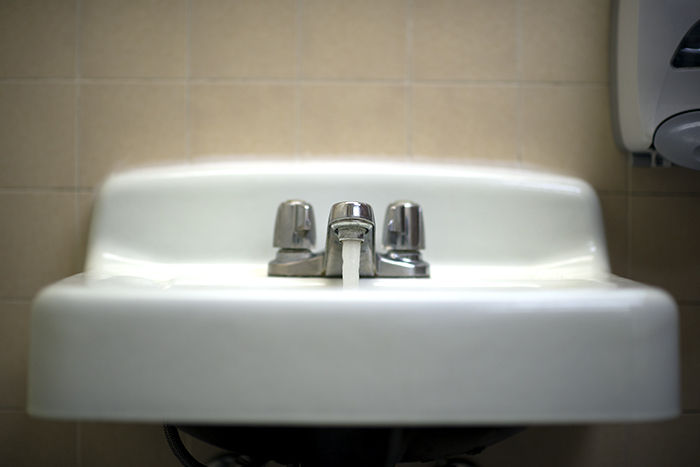Water conservation, a flood of money
Water conservation at WSU is the first step toward taking responsibility for the usage of nature resources.
September 29, 2015
It is time we consider water consumption at Washington State University a bit more critically.
Look back on your experience at WSU, and take a moment to look around the campus before you make any rash decisions to agree or disagree with me.
There are more than 20,000 WSU students in Pullman, according to the university website, and with campus population rising like grandma’s bread dough and water storage plummeting like the stock market in the ‘20s, there is a brewing cause for concern.
The in-house propaganda tools encourage students to use “green” methods or “eco-friendly” practices to reduce waste. Yet, what do we do with the plastic bottles, cans and mountains of paper?
It has been suggested to the school many times that WSU should start composting so that usable food waste can be collected and managed responsibly.
But what chaps my lips more than the dry air in Pullman is the fact that the school likes to urge the student body to use less water.
The funky up-down flushing toilets and the enormous signs in the Student Recreation Center showers suggest it is our responsibility to consume less water. But, when it comes down to it, the school doesn’t fix leaky faucets in the REC for weeks, they keep taking out concrete lots and throwing in grass, and then they dig grass out only to buy new grass to put back in – like our new signage on Stadium.
“Despite recent rains and some boost for stream flows, extreme drought still covers two-thirds of Washington state,” according to the Washington State Department of Ecology.
Why does this campus waste so much water on the green lawns when the state is in a drought, then at the same time duplicitously urge students to use less water?
I know the university’s heart is in the right place, but they need to practice more of what they preach.
Let’s face it, there comes a time when human beings need to re-evaluate their usage of certain resources – like after my first energy bill in the winter. After a good long cry with my wallet, we do some readjusting and put on a sweater to avoid paying a higher bill the next go around.
Why isn’t the school participating in similar economic practices? For being in an ‘economically conservative’ county we sure do waste a lot of money trying to make it look pretty by relentlessly attempting to keep the grass green.
Understatedly, if we didn’t water the lawns this place would look like desert.
If this school really believes in its own motto’s and core values, they should step it up and use water more responsibly. The lawns usually die in the winter from all the snow anyway, and it must not have been easy to keep them green this summer.
What is so wrong with taking a more natural and economically responsible course of action to keep our water costs down so that future generations might have access to water?
This campus would look fine with biodegradable painted lawns, compost bins, wheat or other indigenous grasses growing around campus. Plus, our golf course would look just fine with a bit more sand, packed dirt and natural reeds. It can be done; we just need to get more creative with our landscape ideas going forward.
And if WSU’s response is ‘we can’t afford it,’ make it a senior project for eco and natural resource students. The university could even just make it an open project for the school or high schools to participate.
WSU could win national awards for the ‘greenest campus’ or ‘recycling’ or ‘reusing.’ The opportunity here can put this school on the map.
The bottom line, water is gold. I refuse to watch the university piss away tuition and donation dollars on green lawns when there are plenty of students who cannot afford to eat lunch. Get your priorities in order WSU.
Jorden Wilson is a senior psychology major from Seattle. She can be contacted at 335-2290 or by [email protected]. The opinions expressed in this column are not necessarily those of the staff of The Daily Evergreen or those of the Office of Student Media.



















